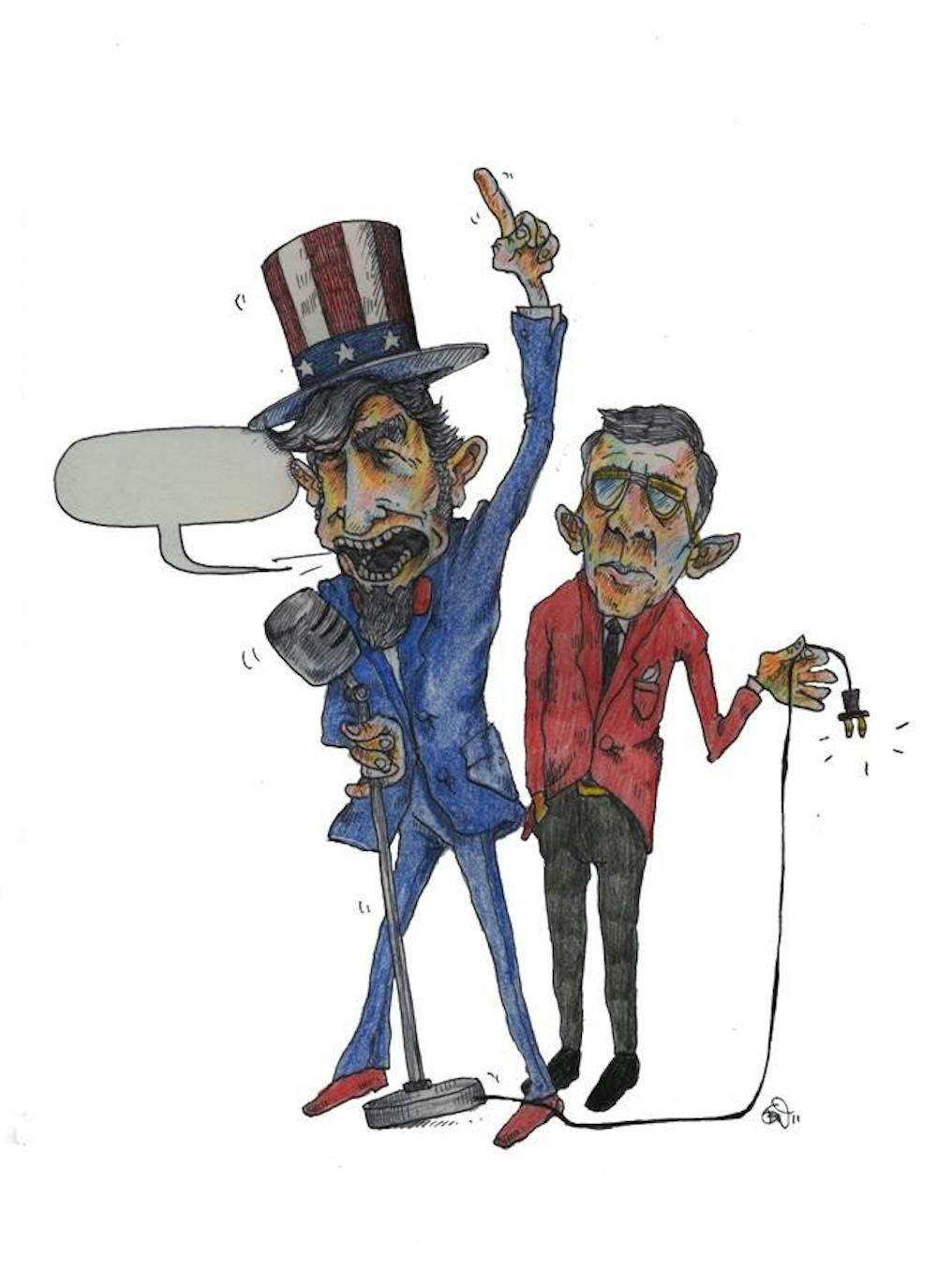The frighteningly power-hungry people currently asking us to send them to (or keep them in) the White House have done a lot of talking about a lot of issues during the last few months.
Unfortunately, I’ve rarely heard any of them discuss the continued assault being waged on freedom of speech.
It’s an essential freedom, one that, if elected, they will swear to “preserve, protect, and defend.”
As we mark the 224th anniversary of the Constitution’s signing later this month, more Americans should be asking presidential candidates what they intend to do about the repeated, sustained attacks against a right that should be cherished by both parties.
I’d like to hear about plans to protect our right to freedom of speech from those devising new exceptions to the protection it affords.
Demanding such protection is necessary given the number of ways this right has been assaulted in the last two years. I’ll cite three major examples.
First, there was the Barack Obama administration’s appalling reaction to the Supreme Court’s January 2010 ruling in Citizens United v. Federal Election Commission.
In that case, decided by a 5-4 vote, the Court struck down provisions of several laws that restricted political speech of corporations and labor unions.
These are entities, although not people, composed of people who should be free to exercise their rights as voluntarily cooperating groups.
The president called for a “forceful” response from Congress and sharply criticized the ruling in a radio address.
Then, mere months after the decision was handed down, he appointed to the Supreme Court the attorney (then-Solicitor General Elena Kagan) who had argued the case for the FEC.
Second, we have seen groups attempting to prohibit certain forms of expression by classifying them with the amorphous term “hate speech.”
Most recently, this fight took the form of a defamation suit. Snyder v. Phelps intended to stifle the protests staged by members of the Westboro Baptist Church at
military funerals.
Fortunately, the Supreme Court, in an 8-1 decision, found that the First Amendment does protect protesters at a funeral from liability for intentionally hurtful speech.
The Court was right to call the protesters’ message “distasteful and repugnant.” The fact remains that curtailing “hate speech” requires us to define that term in a way that doesn’t lead us down a slippery slope toward broad government control of
personal expression.
Third, in June, the Court decided the case of Brown v. Entertainment Merchants Association in which an association of companies in the video game industry challenged a California law that restricted the sale of so-called “violent video games” (another amorphous term) to minors.
The law was insulting because it gave the state a responsibility that should reside with the minors who play the games and their parents.
The Court struck down the law by a 7-2 vote.
It is encouraging that the Supreme Court stood for free speech in each of these cases, but the fact that the nation’s highest court has been doing an admirable job of this lately should not make us complacent.
After all, only three justices — Chief Justice John Roberts and Justices Anthony Kennedy and Antonin Scalia — were in the majority in all three cases.
While Kagan voted with the majority in the last two, she was, as mentioned above, squarely on the side of censorship in the first case before her appointment.
Additionally, Kennedy and Scalia are among those rumored to be closest to retirement, along with Justice Ruth Bader Ginsburg.
Thus, the winner of next November’s election may well play a significant role in shaping the Court’s stance toward freedom of speech for decades to come.
This statement should not be read as an endorsement of any candidate, even though neither of President Obama’s appointees have solid records on the issue.
We should also bear in mind the fact that President George W. Bush’s record was mixed, as he appointed the reliable Roberts as well as Justice Samuel Alito, who was the lone dissenter in Phelps.
Furthermore, the Republicans’ last presidential nominee, Sen. John McCain (R-Ariz.), was a co-author of the Bipartisan Campaign Reform Act, the most egregious attack on political speech in recent history.
Clearly, until the candidates start talking about this issue, we need to keep asking about it.
— jarlower@indiana.edu
Show some First Amendment love

Get stories like this in your inbox
Subscribe





